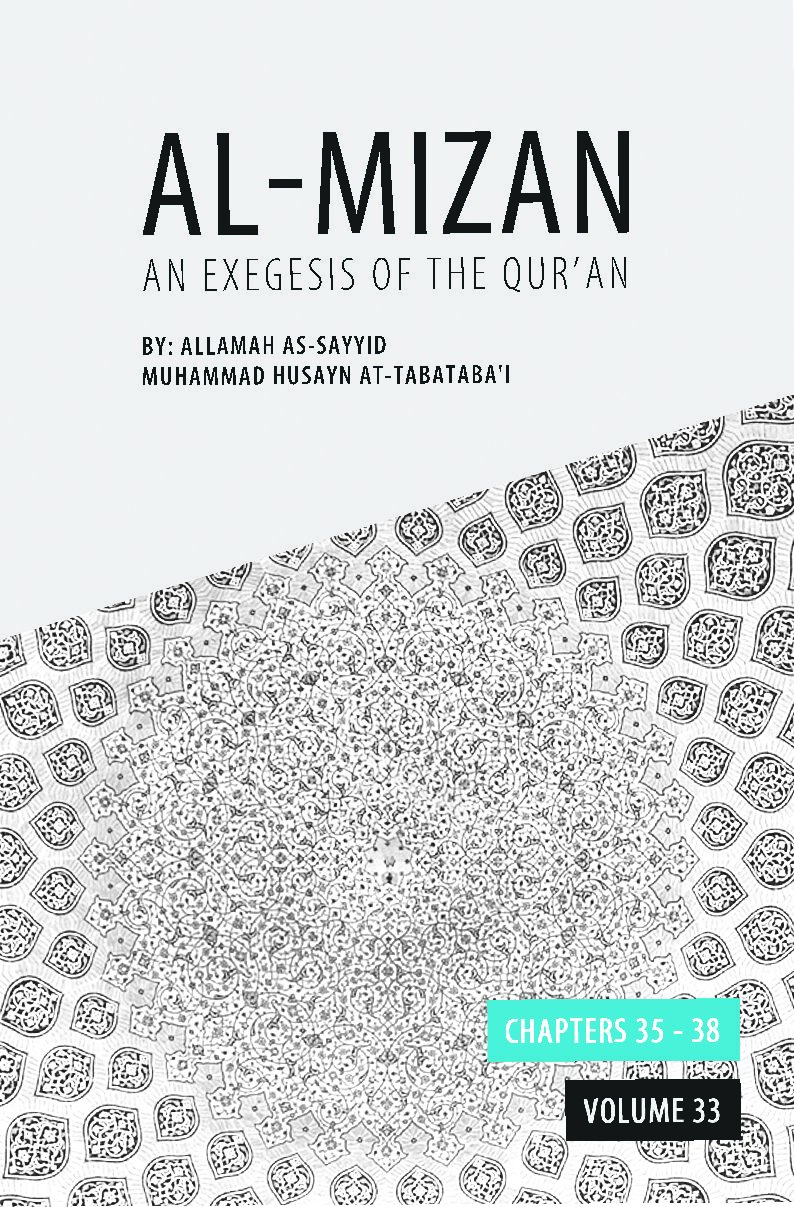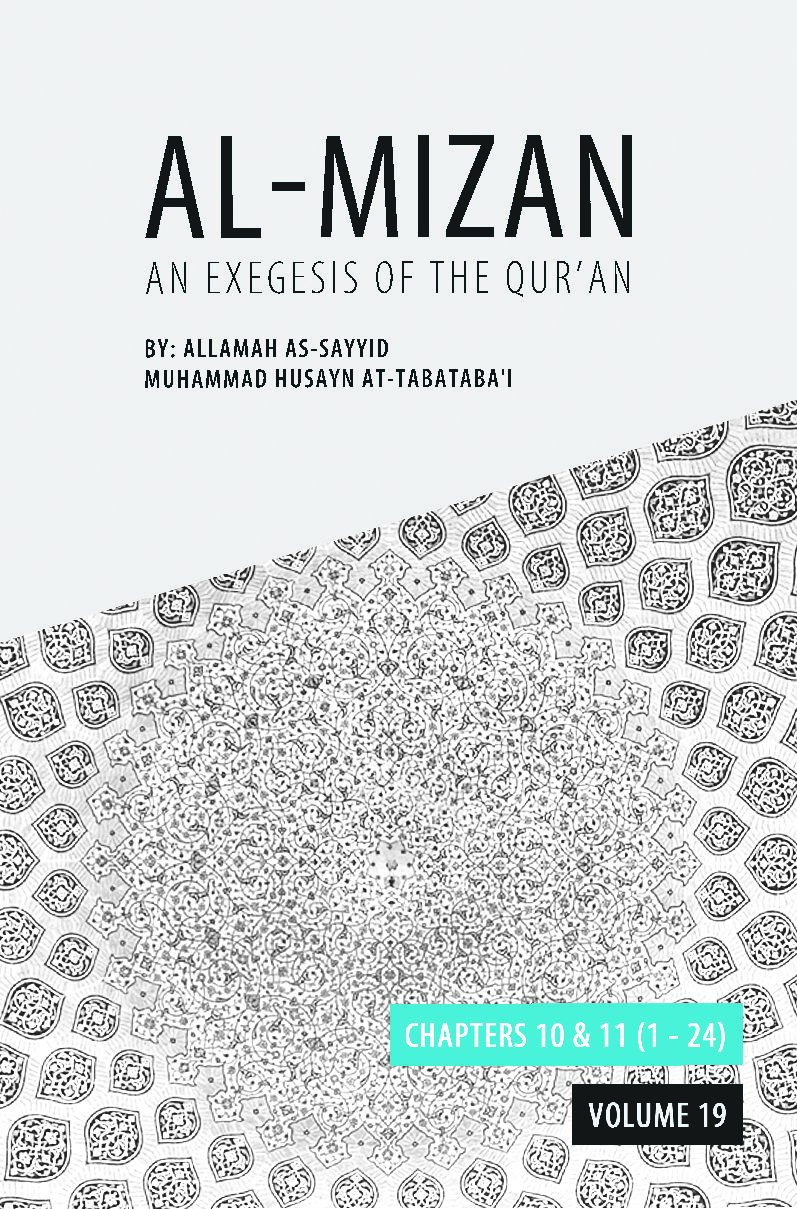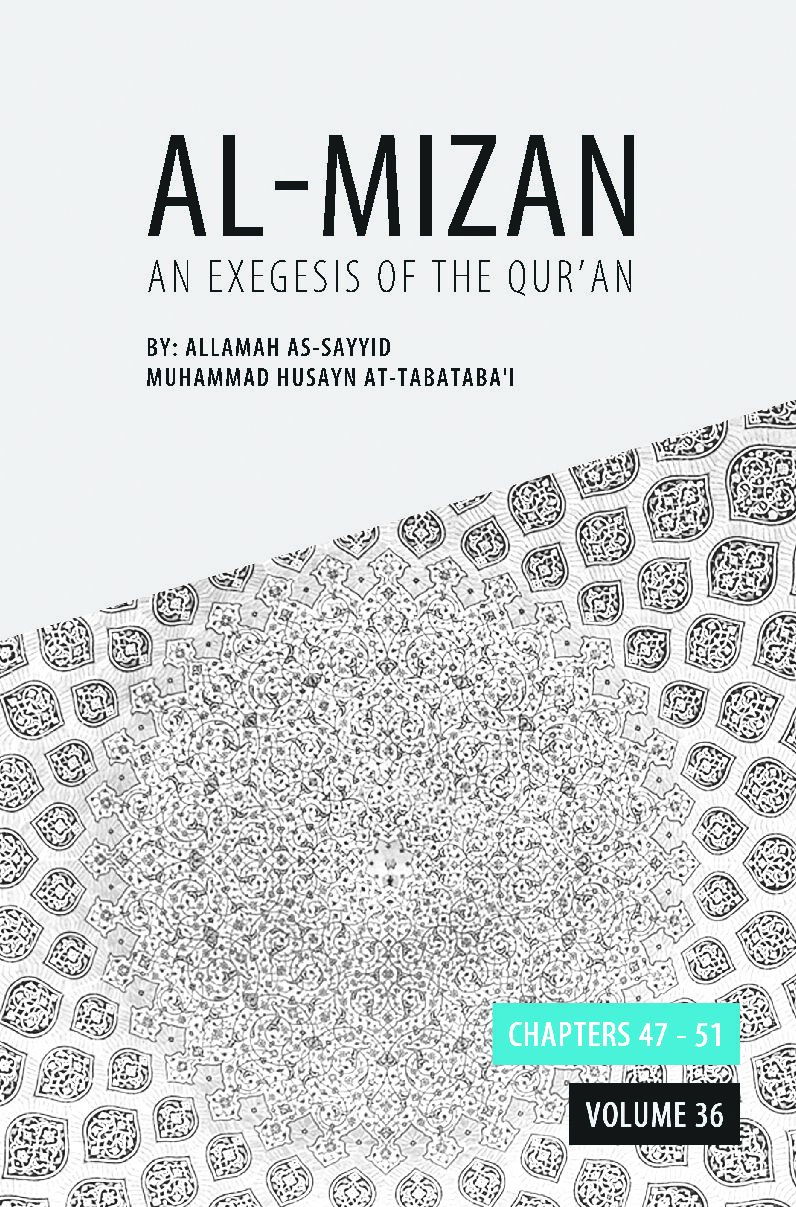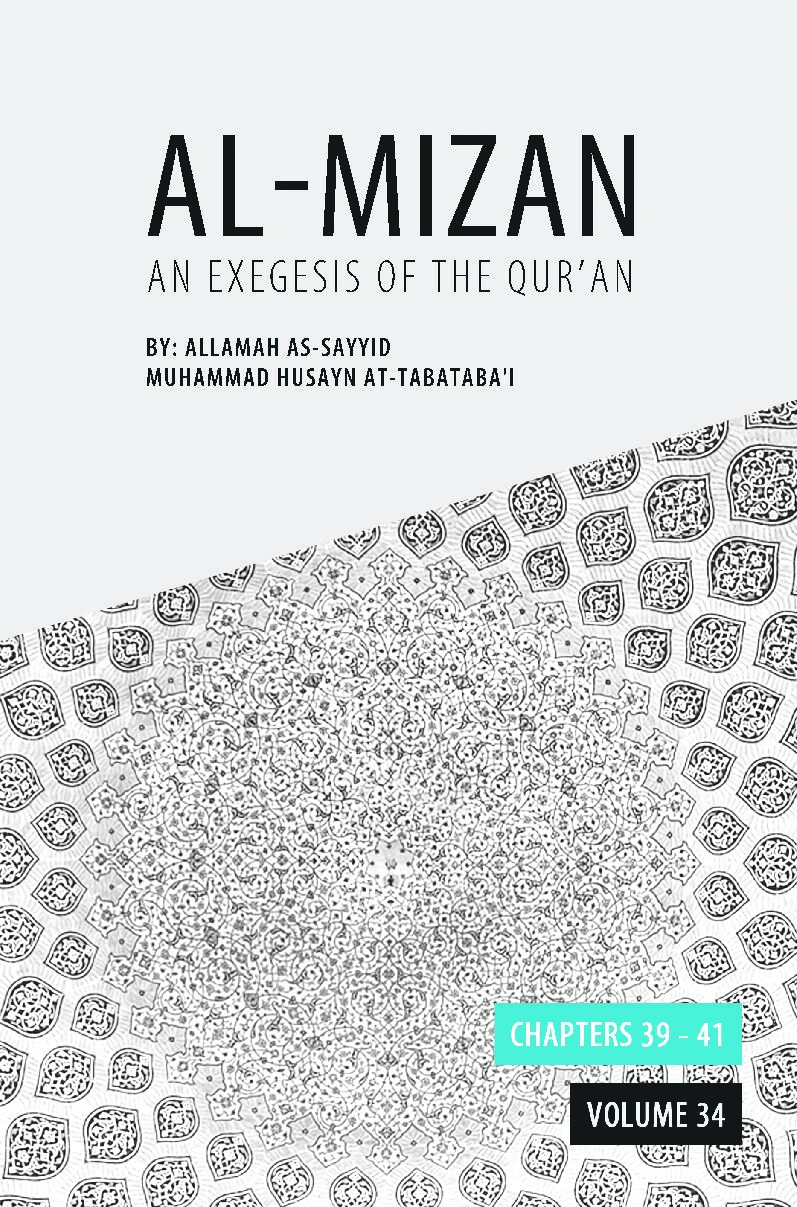From the preceding 32 volumes of this translation, any readers new to ʿAllāmah Ṭabāṭabāʾī have doubtlessly gleaned an appreciation of the magnitude of ʿAllāmah’s work, his methodology, and his life.
This particular volume features a translation of ʿAllāmah’s exegesis of Sūrah al-Fāṭir, Sūrah Yā Sīn, Sūrah Ṣāffāt, and Sūrah Ṣād (Chapters 35-38 of the Qur’an). All or mostly of Meccan provenance, these chapters are of middling length and share an esoteric bent: one, Sūrah al-Fāṭir, opens with a proclamation about the angels; and another, Sūrah al-Ṣaffāt, embarks upon the subject of the jinn. Thus, this volume offers greater discussion of these topics.
Satan also looms in these chapters, particularly in Sūrah al-Fāṭir, which identifies Satan as the deluder and the enemy; and Sūrah Ṣād, which tells of how Satan disobeyed God when God created the human being (Adam) and commanded Satan to bow to him. Together, these sections of the exegesis build a greater understanding of the Islamic conception of Satan.
Beyond these topics, like the other chapters of the Qur’an, these chapters emphasize God’s oneness and omnipotence; as an oft-cited verse in Sūrah Yā Sīn says, Whenever He wills something, He says to it “Be!” and it is (36:82). Since many of the Meccans were polytheists, these chapters feature a dialectic between monotheism and polytheism in its various forms – that is to say, polytheism involving the worship of wholly unreal things (such as false gods), or the worship of real things (such as angels, jinn, or stars; see exegesis of 39:40) – a distinction often lost in modern exegesis.





